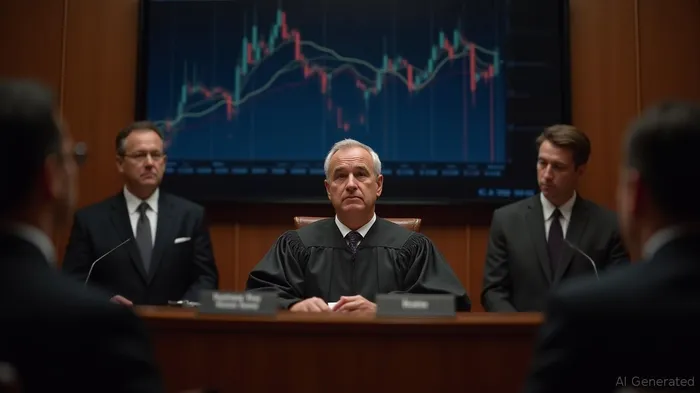Judge Torres Rejects SEC’s Request to Dissolve Ripple Injunction
Prominent attorney and long-time XRP advocate John Deaton has shared his thoughts on one of the latest developments in the case between the U.S. Securities and Exchange Commission (SEC) and RippleXRP--. Reacting to Judge Analisa Torres’ decision regarding the SEC’s request for an indicative ruling to dissolve the injunction against Ripple, Deaton stated, “Although I believed she would ultimately grant the indicative ruling, I can’t say I’m shocked.” His comment reflects a balance between expectation and acknowledgment of the legal complexities surrounding the case.
In an attached video, Deaton elaborated on the legal reasoning behind the judge’s response. He explained that Judge Torres signaled clear dissatisfaction with how the SEC approached its request. According to Deaton, the judge pointed out that the SEC cited the wrong legal rule in its motion. More importantly, the SEC had failed to demonstrate the presence of exceptional circumstances that would justify the court reversing or dissolving its prior injunction.
Deaton emphasized that Judge Torres made it clear that the bar for dissolving an injunction is set very high. She reminded the parties that her original decision was grounded in the law and that simply deciding to change course would not be sufficient justification. Deaton noted her firm stance, summarizing her message as requiring the SEC to present substantial justification, not mere convenience.
Deaton did not hold back in expressing his view that the judge appeared frustrated by the SEC’s approach. Referring to Judge Torres’ reaction, he commented, “I thought, shit, she’s pissed off.” He pointed out that the judge has dedicated over four and a half years to this case, investing significant time, resources, and judicial effort. The sudden pivot by the SEC, which initially pursued a $1.3 billion penalty but later asked the court to reduce the $125 million fine by 60% seemed insufficiently justified from her perspective. Deaton suggested that this abrupt change in position likely contributed to the judge’s demand for a higher standard of explanation. He framed it as an understandable reaction, considering the magnitude and duration of the litigation.
Deaton further commented on the quality of the briefings presented by both the SEC and Ripple in response to the court’s requirements. He expressed disappointment, stating that he had expected a more detailed and thorough submission. His remarks suggested that both parties, particularly the SEC, underestimated the burden of proof required to satisfy the court’s demand for exceptional circumstances. He reiterated that the judge’s insistence on more substantial evidence and reasoning reflects the serious nature of changing a court order. Deaton’s analysis indicates that Judge Torres is maintaining strict adherence to legal standards rather than allowing procedural shortcuts.

Quickly understand the history and background of various well-known coins
Latest Articles
Stay ahead of the market.
Get curated U.S. market news, insights and key dates delivered to your inbox.



Comments
No comments yet